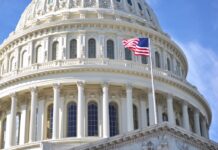
When you experience a major medical issue, the last thing you hope to see is a very high bill you don’t have any control over. For so many Americans, this is how life plays out — we are all one emergency away from that bill. You might have an emergency surgery with the help of an anesthesiologist who was not in your insurance’s network. Maybe you were picked up by an ambulance that was not an in-network provider; and perhaps any one of your emergency service care providers wasn’t covered by your insurance. After all, the insurance companies don’t care that you had an emergency and therefore had no choice over whether your providers were in or out of network.
Even if you weren’t conscious, the insurance company might still try to bill you. Fortunately, there may be a solution thanks to the No Surprises Act. This can help you pay much less for that high bill if you have insurance.
Details of the No Surprises Act
As of January 2022, the No Surprises Act has taken effect. This act promises that Americans cannot be legally billed for out-of-network services when they are in an emergency medical situation. Patients just like you were worried, because anesthesia and other common procedures performed during emergencies were being billed to everyday Americans at a much higher rate than they would have been if the providers were in-network.
In some instances, ambulances took patients to medical facilities and hospital networks that were fully out-of-network, which resulted in a much higher charge for an entire medical stay and each individual specialist the patients saw.
It’s like your insurance company expects you or anyone in an emergency situation to check and make sure you’re covered where you’re going, and to call your insurer and check each and every doctor. Some insurance companies were even billing this way because the emergency services were “not pre-authorized.” While that might make sense during non-emergency situations when you get an MRI or CT scan elsewhere, you don’t have much choice during an emergency situation.
Ground Transport, or Ambulance Services by Locality
Whether ground transport is covered under the No Surprises Act is a bit of a gray area, but they are still largely covered. Instead of hospital systems (of which there may be a few in a metropolitan area), insurance companies must work with thousands of ambulance providers throughout the company, and each private company has incredibly different fee schedules and billing structures. This usually winds up in the insurance company simply sending a patient a massive bill for ambulance services.
In these cases, your insurance company determines what they consider a fair share of the bill for them to pay, leaving you with the balance. This is referred to as “balance billing.” To combat this, you’ll have to invoke the No Surprises Act and head through multiple layers of appeals with your insurance company. Keep your ambulance service provider in the loop to let them know what’s going on, and make sure they assist you, so you’re not a victim of balance billing, which is now illegal. (And naturally, you’re expected to do all of this while recovering from a surgery.)
What to Do If You Get Balance Billed Under the No Surprises Act
Were you billed for an out-of-network provider in an emergency situation, or balance billed for emergency ground transport services? If so, you should dispute the bill. Many consumers simply pay the illegal bills, so the insurance companies often try to bill illegally anyway unless they are disputed.
Usually you have to go through a few rounds of appeal review before the insurance company will agree to pay most of the bill. However, if they refuse entirely, you have to take the case to your local Congressperson (try one in favor of healthcare policies that benefit citizens). Legal Aid could also help.
While the No Surprises Act has been around since early 2022, insurance companies will do anything to make a profit. It’s up to you to advocate for yourself, call them out, and stop the big bills whenever possible.


























